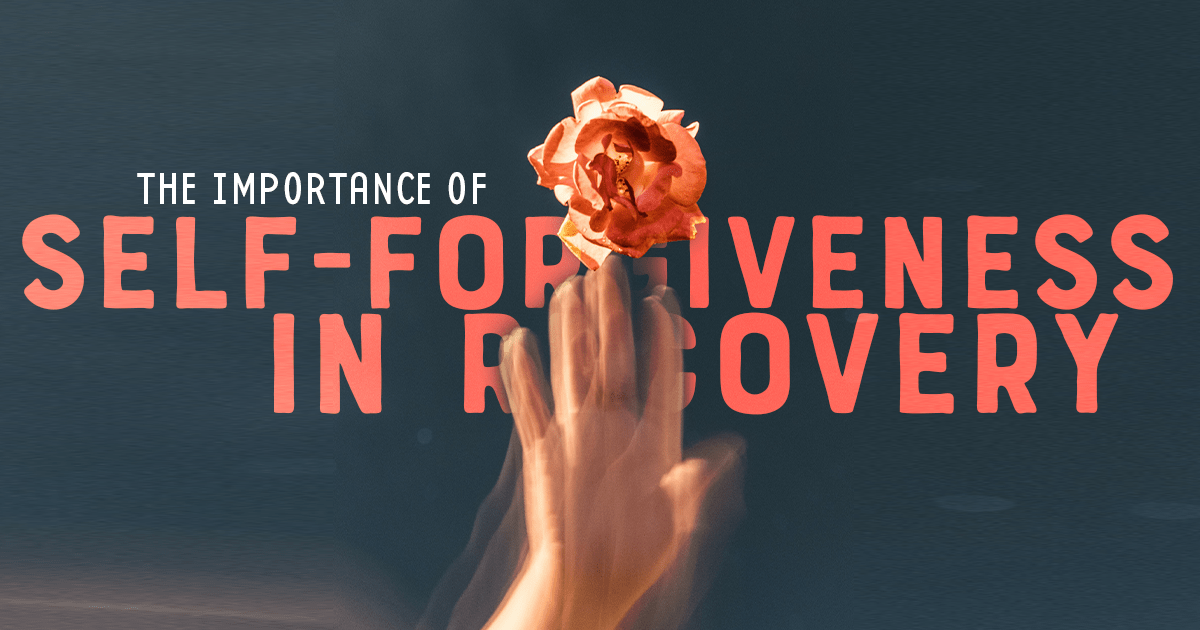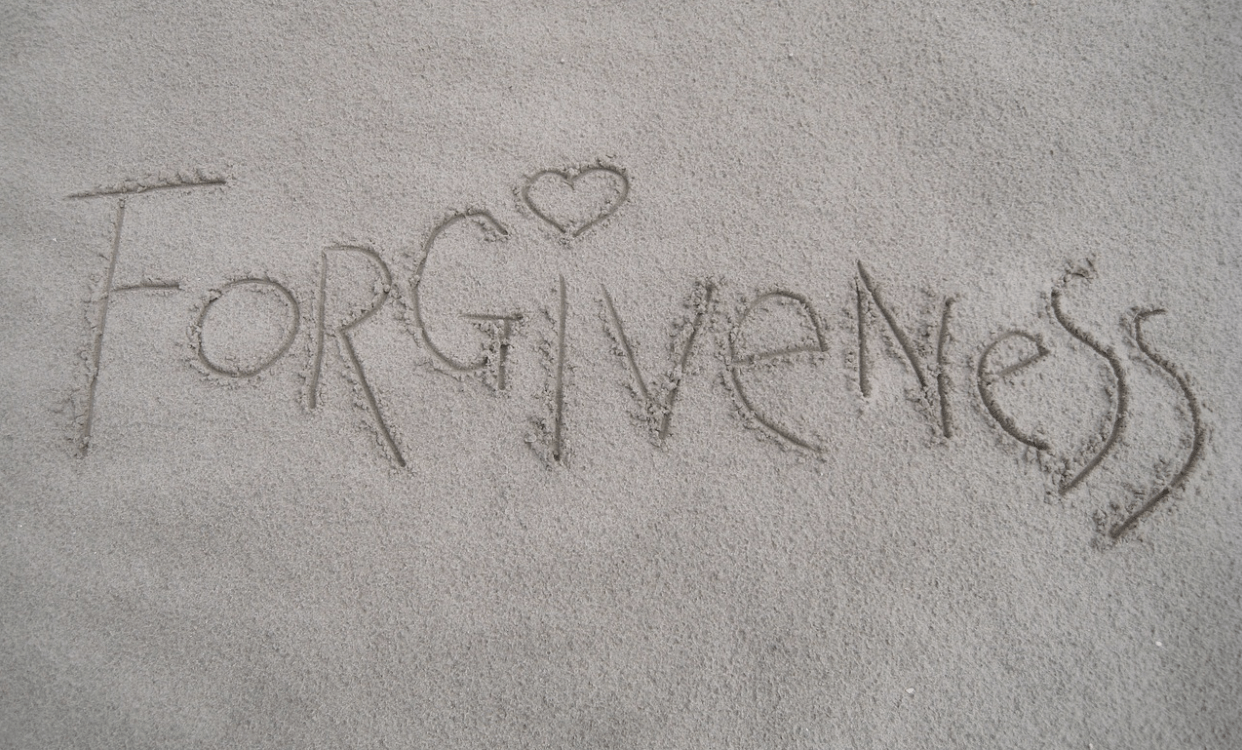
Self-forgiveness in the recovery process is essential.
If you can’t forgive yourself in the recovery process from drug or alcohol abuse, you aren’t going to be able to move forward in a healthy, positive way.
When you can’t forgive yourself, you’re going to get stuck in a cycle of shame and guilt. Shame and guilt fuel addiction and addictive thinking.
Forgiving yourself is easier said than done, however.
The Role of Shame and Guilt In Addiction
Shame and guilt are powerful emotions. They can slowly erode you mentally and spiritually if you don’t find healthy ways to cope with them.
- Shame is a complex feeling that can occur when you’re the perpetrator of wrongdoing, but it can also be something you experience as a victim.
- For example, your cycle of shame could have started when you experienced abuse, leading to PTSD. Untreated PTSD could then fuel your substance use. Guilt would then become part of the cycle if you felt that you were letting your children or family down, which could bring you deeper into the cycle of addiction.
- According to empirical evidence, feelings of guilt and shame both create and feed an addiction whether it’s an alcohol addiction or drug addiction.
- When you feel these two emotions, you experience distress about your actions. They can cause you to hate yourself. Both feelings also relate to other mental health conditions, including depression.
The terms may be used interchangeably in many situations, but there is a subtle difference between guilt and shame. Guilt relates more to particular actions, while shame can define who you are as a person, or at least you feel like it does.
- When you have deep-rooted feelings of shame, they become part of your story, and you begin to believe you’re a bad person and can’t do good.
- Both shame and guilt increase the risks of unhealthy substance use, which can lead to angry outbursts and unhealthy relationships.
- There are links between these feelings and substance use and other addictive behaviors such as binge-eating and sexually risky behaviors.
Along with fueling addiction, guilt and shame can be an obstacle to recovery, and studies show higher rates of these feelings lead to worse recovery outcomes. Having unresolved and distressing feelings can shorten periods where you go without using, increase relapse rates, or be a reason why you don’t seek treatment.
What Is Self-Forgiveness in the Recovery Process?
When you’re in treatment for addiction, you may hear a lot of talk about letting go of resentment. We tend to first associate this with resentment toward other people without realizing we may have persistent grievances against ourselves.
It can be much harder to forgive yourself than someone else.
- When you’re in active addiction, many of your behaviors hurt people or cause regret.
- You then internalize these active addiction behaviors and start to think you’re a bad person.
- In recovery, it’s important to work toward the realization that addiction isn’t who you are, and everyone makes mistakes.
- When you’re stuck on feelings of shame or guilt, then you’re keeping yourself in the past.
- When you work through the process to forgive yourself, you’re able to move forward and become “unstuck.”
Self-forgiveness in recovery doesn’t mean you aren’t taking responsibility for the harm you’ve inflicted on others. Personal responsibility can be part of self-forgiveness. The best way to move forward is to acknowledge your actions and impact and then move forward with mindfulness.
Women and Shame
There’s a particularly complex relationship women tend to have with shame. Shame in women affects how you view yourself and your self-esteem.
- According to organizations like the American Psychiatric Association, it’s also more common in women than men, largely because of cultural and societal expectations and standards.
- Women have higher levels of shame than men in many cases, and they tend to have a harder time with different aspects of forgiveness for themselves, according to empirical studies.
- Outside of addiction, when women seek treatment for mental health disorders like anxiety, depression, or eating disorders, they often have to work through complex and crippling feelings of shame.
- Having these feelings prevents many women from seeking a mental health disorder or substance abuse treatment.
- Women often experience shame as they’re forced to meet society’s standards as partners, mothers, and more.
- When women are victims of sexual or physical abuse, they may internalize their shame and feel like they deserved what happened to them.
- Women from different cultural backgrounds may also experience more shame than others.
These are all things that have to be part of treating mental health disorders and addiction.

How to Practice Self-Forgiveness In Recovery
While every situation is unique, some general ways that people and women, in particular, can begin to practice self-forgiveness in recovery from drug or alcohol use disorders include:
Acceptance
Acceptance is essential to recovery. We have to come to terms with who we are and what happened throughout our lives and addictions.
- With the acceptance of responsibility, you admit mistakes and acknowledge and recognize your feelings of guilt and shame.
- There’s no value in continuing to dwell on your mistakes, but there is in acceptance and moving forward.
- Acceptance is a key part of 12-step programs. The serenity prayer that’s recited at the end of each 12-step meeting highlights the importance of acceptance.
- You can’t change the past, but you can learn from it, reflect on it and use it to make progress.
- You can also start recognizing through acceptance that you aren’t the same person as you were in active addiction.
- Mindfulness can be helpful in acceptance because it encourages you to move your thoughts back to the present rather than the past or the future.
- When you go to rehab, a personalized treatment plan will often start with acceptance as part of the ongoing process to forgive yourself.
Stop Putting Yourself Down
Don’t speak to yourself like your own worst enemy. Our self-talk can be incredibly damaging. You need to remember that you wouldn’t speak to another person in some of the ways you might talk to yourself.
- Treat yourself like you would others—with patience, kindness, and understanding.
- You can come to a place where you develop the fundamental belief that you are good, but it takes practicing how you speak to yourself.
- Know that you’re doing your best.
- You also need to speak to yourself with compassion. You aren’t making excuses, but you recognize the trauma you’ve gone through.
The more you can practice developing positive attitudes toward yourself, the stronger you’ll feel in your recovery and the higher your levels of forgiveness toward yourself.
Take Care Of Yourself Physically
Practicing self-care and doing positive things for your physical health can help reinforce that you are worthy and valuable, leading to increases in forgiveness for yourself.
Self-care is integral to recovery from addiction as well.
Find healthy habits and ways that you can show yourself you care. This might mean doing yoga, taking a walk, or practicing meditation instead of relying on the influence of alcohol or drugs.
Creating a Physical Ritual of Self-Forgiveness
When you have a physical element of self-forgiveness that’s tangible, it can help you. One example is writing a letter to yourself on a piece of paper, expressing your forgiveness. This lets you process what you’re feeling, develop a sense of closure, and move forward.
Addiction treatment is when you can focus on forgiving yourself and creating a new path forward past difficult times. Please reach out to our team to learn more about treatment programs for women beginning a journey of recovery and self-forgiveness.
Our team can help you learn more about alcohol abuse treatment program options and treatment for drug addiction to help facilitate a lifelong recovery, promoting decreases in shame and an increase in forgiveness for yourself and others.
The Anchored Tides Recovery abstinence-based outpatient program is specifically for women in Southern California. We offer evidence-based treatment and outpatient group psychotherapy, and individual treatment plans; to learn more call 866-600-7709.



























